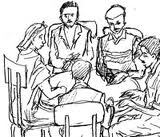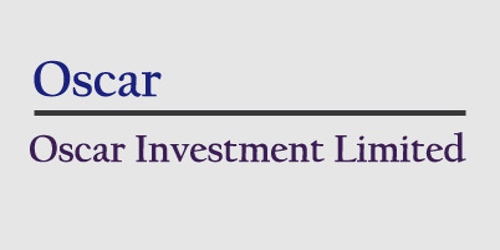Introduction
Professional Legal Education should necessarily focus on the lawyering skills. Client counseling is a vital skill in which the students of law should be trained. One of the significant functions of a lawyer is to advise the people who seek assistance in knowing the legal implications of their actions. The lawyer is looked upon to facilitate decision making in certain critical legal matters. This function of the lawyer influencing and facilitating decisions is called counseling. Bar Council of India, the highest professional body of lawyers, has a key role in Professional Legal Education.1 It has drawn up a detailed scheme on practical training consisting of professional ethics, bar bench relations, contempt of court, moot court, pre-trial procedures, negotiations, interviewing and counseling, drafting of conveyances and pleadings, legal aid, public interest lawyering etc.
The word ‘Counsel’ has its origin in the Latin word ‘consilium’ which means advice.2 According to Blacks’ Law Dictionary, counsel means advice and assistance given by one person to another in regard to a legal matter, proposed line of conduct, claim or contention. As a matter of fact lawyers are also legal counsels. Counselor is an attorney; lawyer; member of the legal profession who gives legal advice and handles the legal affairs of client, including if necessary appearing on his or her behalf in civil, criminal or administrative action and proceedings. The process of counseling has two functions:
1. To help the person talk about, explore and understand his or her thoughts and feelings and workout that what he or she might do before taking action.
2. To help the person decide on his or her own solutions.
Lawyers counsel the client in deciding how his problem can be sorted out under the laws. Legal counseling is the process by which a lawyer communicates advice to a client.
A client is a person, natural or legal who approaches the lawyer for legal assistance. The word client has its roots in the Latin word ‘clients’. Client is a person using the services of a professional person or organization. Counseling is the activity in which one person seeks and in one way or another, pays for help from another person. It is characterized by need on one side of the relationship, by willingness to help on the other, and by and inter personal contract based on mutual attraction. Counseling as a professional activity will involve competence and expertise in addition to mere willingness. Legal counseling is fairly considered a ‘service’ under the Consumer Protection Act, 1986 making the lawyer accountable for deficiency.
In a counseling relationship the client has to open himself to help and the lawyer has to protect the best interests of his client. Legal interviewing and counseling is what lawyers do in an office where they see clients one or two at a time, with the door closed. Lawyers elicit information from their clients, which information forms the basis for their advice. Legal counselling can be for litigation or for planning. Clients may seek advice as to proper legal course of action before Courts or as to estate, tax or business planning.
Client Interviewing for Client Counseling
In a lawyer – client meeting, the client opens up and talks his problem and concerns and expresses his expectations. The lawyer listens, notes down and questions the client for necessary information. There is a sharing of information, views and needs through verbal communication. This communication which is the life blood for effective counseling is called ‘interviewing’. Client interviewing is a prominent part of legal profession. Giving options, suggesting alternatives, effective client representation, drafting of documents, pre-trial preparations etc. are all dependent on this client interviewing.
Purpose of Client interviewing
The lawyers require to know the factual dimensions of their client’s situation. Factual matrices are the conditions for laws to operate. “Neat packages of fact are a predicate for professional activity by lawyers”. One fundamental purpose of interviewing is to know the facts story. The responsibility of gathering the facts is that of the lawyer. The fact that the client has approached a lawyer itself conveys that he or she has identified some legal problems. But the client may not know what matters, facts, instances and documents are significant and relevant. The lawyer will have to extract the necessary information and identify the legally sensitive facts. Expression of feelings like disillusionment, digestion, pain etc can also constitute important facts. Identification of witnesses, documents etc, are also done by interviewing.
The second significant purpose of interviewing is building the professional relationship with the client. The lawyer shall ensure to the client that his interests will be well taken care of and he and his feelings will be genuinely respected. Mutual trust is the characteristic feature of the professional relationship. If the client does not trust he may not divulge certain secrets and may find uneasy to discuss certain delicate matters. It is pertinent to note that the duty to maintain confidentiality is implicit in the lawyers duty to give priority to the interests of the client. Bar Council standards of professional conduct and etiquette mandates that the advocates shall not directly or indirectly, commit a breach of the obligations imposed by Section 126 of the Indian Evidence Act.
In establishing the professional relationship the lawyer will be necessarily interested in knowing certain personal details about the client, his background, credibility etc. If the lawyer has certain reasons to disbelieve the client he shall openly discuss with the client the factors inhibiting the trust relationship. Finally it is the preference of the lawyers to decide whether to take up the case of the client. In the professional relationship mutual obligations will be discussed and agreed upon. One interesting and important aspect is that of fees. Quoting the fees is an art best learnt by experience. Lawyer shall be guided by his stand at the bar, nature of the case13 and affordability of the client. Free legal assistance to the needy is a noble duty. An Advocate shall not stipulate for a fee contingent on the results of litigation or agree to share the proceeds thereof.The third notable function of interviewing understands the expectations of the client. What are the interests, expectations and concerns of the client? Unless these are understood and seriously considered, the efforts to satisfy the client will go in vain. It should be remembered that it is the satisfied client who while advertise for that lawyer.
Initial and Subsequent Interviewing
Interviewing the client may be a continuous process as the matter proceeds. There may be cases of a single interview and counseling. But generally when the client seeks counseling and assistance in deciding from alternatives available and also representation in the Courts or other means of implementation of the decisions, interview will be an on going process. The first/initial interviewing shall be carefully attended to.
“But the initial interview is essential to cementing the foundation for the lawyer-client relationship. If the job is poorly done, the foundation will be unable to support the construction of the complex professional relationship needed to conduct a long or emotionally difficult case.”
The client may be very nervous or skeptical. It may be nerve wracking for the client. Lawyers shall develop the ability to spot nervousness and the capability to tackle such clients. An informal friendly enquiry, offering refreshments, changing environment may be required to make such clients comfortable. The law office shall be properly ventilated and illuminated. Orderly arrangement and aesthetic look of the office shall be given due attention. Office atmosphere should keep the clients comfortable. Meetings with clients should be in privacy where ever desirable otherwise clients will not open up. They shall be assured that their secrets would be safe in the lawyers hands.
Interviewing Techniques
Interviewing is a very purposeful activity and attending to small things in a meticulous manner can provide fruitful results. Counselors should be patient and careful listeners. That the client has approached a particular lawyer shows that he/she trusts the lawyer and a patient hearing will only enhance the trust. Moreover the client fears that his property, life or liberty would be at stake and his feeling should be respected. Lawyer should listen with interest and ensure uninterrupted hearing. Office staff should be instructed accordingly. Physically responding to what is said, commenting and questioning on certain significant matters will assure comfort. Lawyer shall mind the manner and tone of their questions. Silences will have to be tolerated, unwarranted interruption can block important information. An atmosphere that encourages expressions of feelings should be ensured. But the lawyer shall be dispassionate and objective lest his logical, critical and analytical skills will be impaired.
Before Counseling
Client Counseling is a professional activity anchored on the special knowledge of the counselor. The client in most cases absolutely surrenders his matter to the lawyer and accepts his suggestion in toto. The lawyer is duty bound to uphold the best interests of his clients by all fair and honorable means. An advocate shall not do anything whereby he abuses or takes advantage of the confidence reposed in him by his client.18 There can be disciplinary action by Bar Council for breach of code of ethics.19 Lawyer shall also bear in mind his accountability under consumer law and common law,
During Counseling
Lawyer shall act responsibly while communicating legal advice to the client. Care shall be taken to speak in client’s language. A lay man cannot appreciate legal terminology. It shall be the duty of the lawyer to assist the client in understanding his rights and duties. The lawyer shall explain all options in the situation with consequences and costs. Assistance in making choice from available options shall be rendered. No option shall be forced upon the client. An advocate shall not, at any time, be a party to fomenting of litigation.20 The lawyer shall be objective and honest and explain the weakness of the case as well.
Effective Counseling
Effective presentation of a legal opinion/advice depends on several important requirements. Substantial thoroughness in the knowledge of law and procedure is a must. Logical and critical thinking will enhance appreciation of the objective dimensions of the client’s situation. Good inter personal skills will help in interviewing the client properly and broadening the information base. Sharp comprehension skills will be required to appreciate the expectation and concerns of the client. Liberal education about developments and happenings around is also important. We have to be alive to the fast changing would around us. Updation of knowledge by keeping abreast of changes in codified law and of latest decisions of Courts and tribunals is indispensable. Clarity of thought and good communication skills are essential to send the message across to the client.
Learning Counseling Skills
Learning to apply law in a given situation can mark the beginning. This will help students to identify the problem, formulate the issues and seek solution under law. We cannot conceive of a lawyer who cannot talk. Communication skills can be learnt by interacting in the class room discussions. Raising questions should be encouraged. The opportunity to answer questions raised in the classroom can be offered to students with the teacher’s concluding remarks. Classroom presentations on small topics should be compulsory for students. Such presentations should be at least five for each student in every term. Group discussions and seminars for students will open more gates for student participation.
Counseling can be taught to students by stimulation exercises. The lawyer’s role and the client’s role can be enacted for the observation of students on hypothetical problems. Sufficient pre-planning is required. A variety of problems will have to be chosen. The students can be given mock counseling exercises where they will interview and counsel. The students can pick up counseling skills by observing real interviews and counseling in an advocate’s office. This requires cooperation on the part of advocates and also the consent of the clients. Legal aid clinics and legal aid camps can offer great opportunity to law students in learning counseling techniques.
Conclution
Counseling can be taught to students by stimulation exercises. The lawyer’s role and the client’s role can be enacted for the observation of students on hypothetical problems. Sufficient pre-planning is required. A variety of problems will have to be chosen. The students can be given mock counseling exercises where they will interview and counsel. The students can pick up counseling skills by observing real interviews and counseling in an advocate’s office. This requires cooperation on the part of advocates and also the consent of the clients. Legal aid clinics and legal aid camps can offer great opportunity to law students in learning counseling techniques.
















